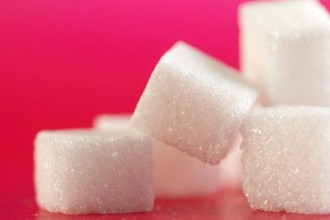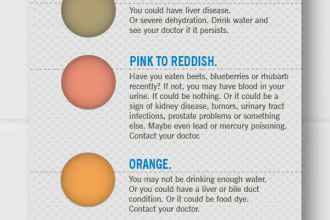Unfortunately, there’s a lot of misinformation and confusion when it comes to nutrition. Here are 5 common nutrition mistakes that keep us overweight and sick:
- Eating fat makes you fat
This myth is based on bad science. Driven by an epidemic of heart disease a couple of decades ago, scientists conducted a number of highly flawed studies. The diet-heart hypothesis is the idea that saturated fat and in some versions cholesterol, raises blood cholesterol and contributes to the risk of heart attack. This paved the way for the low-fat craze as the food industry exploited the advice and invented low-fat junk food which led to increased consumption of trans-fats, increasing the risk of obesity, diabetes and heart disease. But the advice to cut dietary fat was never intended as advice to eat low-fat, high-carbohydrate, high-sugar and processed junk food it was intended to direct us to the naturally low-fat vegetables, fruits, beans, lentils, whole grains, and lean meats. Inexplicably, this myth still persists, despite significant scientific research proving it to be completely wrong[i]. A2010 article reviewing 21 prospective epidemiological studies (with a total of 347,747 subjects) found absolutely no association between saturated fat and heart disease[ii]. Today’s science suggests; the primary cause of excess weight and the chronic diseases that accompany it is actually the consumption of too much sugar and grains, which are quickly converted to sugar by your body. Also, diets high in fat (and low in carbohydrates) cause significantly greater fat loss than diets that are low in fat[iii],[iv],[v]
- You should eat many small meals throughout the day
This myth is based on the idea that eating raises your metabolism. Whilst it’s true that your metabolism rises slightly when you are digesting a meal, it’s the total amount of food that determines the energy used, not the number of meals. A number of controlled clinical studies have tested and disproved this myth; a controlled study where one group ate many small meals and the other the same amount of food in fewer meals revealed literally no difference between the two [vi],[vii]. Another school of thought is that constant grazing prevents dips in blood sugar, which can lead to craving and overeating sugary, carbohydrate rich foods. Interestingly, it may have the opposite effect, a study of obese men revealed that eating 6 meals per day led to less feelings of fullness compared to 3 meals[viii]. In fact, current scientific data suggests we may actually need periods of fasting for optimal metabolic functioning. Intermittent fasting leads to more efficient fat burning; reduced insulin resistance which cuts cravings and inflammation and improved blood pressure and brain function.
- Artificial sweeteners are better for you than sugar and promote weight loss
Many people use artificial sweeteners to lose weight and/or because they’re diabetic and need to avoid sugar. The irony is that almost every study analysing their effectiveness shows that those who use artificial sweeteners actually gain more weight than those who consume sugar. But that’s not the worst part; studies also reveal that artificial sweeteners can be worse than sugar for diabetics[ix]. Data gathered from the 25-year long San Antonio Heart Study revealed drinking diet soft drinks increased the likelihood of serious weight gain, far more so than regular soft drinks[x]. On average, each diet soft drink the participants consumed per day increased their risk of becoming overweight by 65% within the next seven to eight years, and made them 41% more likely to become obese. There are several explanations for this; sweet taste appears to increase hunger, regardless of caloric content, they also appear to perpetuate a craving for sweets so overall sugar consumption is not reduced, leading to problems controlling weight[xi]. Also, artificial sweeteners may disrupt the body’s natural ability to ‘count calories’. Rats fed artificially sweetened liquids eat more high-calorie food than rats fed high-caloric sweetened liquids[xii]. On top of this, there are many health dangers associated with artificial sweeteners; aspartame in particular[xiii]. I avoid artificial sweeteners at all costs.
- Carbohydrates should be your biggest source of calories
An easy one to get confused about because the mainstream view, as illustrated by the Food Standards Agency’s eatwell plate, dictates everyone should eat a low-fat diet, with 50-60% of total calories coming from carbohydrates. This diet contains a significant amount of grains and sugars with very small amounts of fatty foods such as meat and eggs. Whilst this type of diet may work for some people, studies consistently favour low-carbohydrate, high-fat diets [xiv] ,[xv], [xvi] and for those who are obese or have metabolic syndrome or diabetes, this amount of carbohydrates elevates blood sugar increasing the risk of weight gain, heart disease, kidney disease, high blood pressure and blindness.
- Whole grains are good for everyone
The importance of whole grains and fibre is drummed into us on a daily basis by cereal manufacturers. The truth is all grains, including whole-grain and organic varieties elevate insulin levels, which can increase your risk of weight gain, high cholesterol, high blood pressure and diabetes. They are also relatively low in nutrients compared to other vegetables but rich in phytic acid which binds essential minerals in the intestine and prevents them from being absorbed[xvii]. Grains also contain gluten, which a significant portion of the population may be sensitive to[xviii][xix][xx]. Eating gluten can damage the intestinal lining causing pain, bloating and tiredness and has been associated with schizophrenia and depression[xxi][xxii][xxiii]. As a general rule, I recommend restricting grains as well as sugars/fructose from your diet, especially if you have any of the above conditions that are related to insulin resistance. If you don’t have insulin resistance or any issues with gluten and are of normal body weight then grains are fine, especially whole grains – as long as you, choose organic and unrefined forms.
Shani Shaker BA (hons), dipION, mBANT, CNHC is a registered nutritional therapist with a focus on regenerative and functional nutrition, disordered eating, addiction and mental health. Based in London her services include one-to-one coaching, group classes and Skype sessions. Contact her at [email protected]
Disclaimer: The information provided is intended for your general knowledge only and is not a substitute for professional medical advice or treatment for specific medical conditions. Please consult your healthcare provider with any questions or concerns you may have regarding your condition. Supplementation should only be temporary. If you’re eating a nutrient-rich diet, extra supplementation should only last for a month or two, just long enough to resolve the deficiency.
References:
[i]http://www.nutritionjrnl.com/article/S0899-9007(11)00314-5/abstract
[ii]http://ajcn.nutrition.org/content/early/2010/01/13/ajcn.2009.27725.abstract
[iii]http://ajcn.nutriti$on.org/content/86/2/276.full
[iv]http://onlinelibrary.wiley.com/doi/10.1111/j.1467-789X.2012.01021.x/abstract
[v]http://onlinelibrary.wiley.com/doi/10.1111/j.1467-789X.2008.00518.x/abstract
[vi]http://www.ncbi.nlm.nih.gov/pubmed/9155494
[vii]http://www.ncbi.nlm.nih.gov/pubmed/19943985
[viii]http://www.ncbi.nlm.nih.gov/pubmed/20339363
[ix]http://articles.mercola.com/sites/articles/archive/2012/08/09/artificial-sweeteners-worse-than-sugar.aspx
[x]http://uthscsa.edu/hscnews/singleformat2.asp?newID=1539
[xi]http://www.ncbi.nlm.nih.gov/pubmed/2040783
[xii]http://www.ncbi.nlm.nih.gov/pubmed?term=933%5Bpage%5D+AND+2004/07%5Bpdat%5D+AND+Davidson%5Bauthor%5D&cmd=detailssearch
[xiii]http://aspartame.mercola.com/sites/aspartame/studies.aspx
[xiv]http://jama.jamanetwork.com/article.aspx?articleid=205916
[xv]http://www.ncbi.nlm.nih.gov/pmc/articles/PMC538279/
[xvi]http://www.ncbi.nlm.nih.gov/pmc/articles/PMC2633336/
[xvii]http://onlinelibrary.wiley.com/doi/10.1046/j.1365-2621.2002.00618.x/full
[xviii]http://www.ncbi.nlm.nih.gov/pmc/articles/PMC3292448/
[xix]http://www.nature.com/ajg/journal/v107/n12/full/ajg2012236a.html
[xx]http://www.ncbi.nlm.nih.gov/pubmed/17206762
[xxi]http://www.ncbi.nlm.nih.gov/pubmed/21224837
[xxii]http://www.ncbi.nlm.nih.gov/pubmed/6111631
[xxiii]http://onlinelibrary.wiley.com/doi/10.1111/j.1600-0447.2005.00687.x/full




